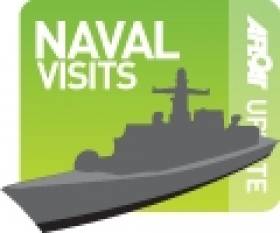Displaying items by tag: HMS Express
University Challenge Heads for Cork
#NAVAL VISITS – Two small University Royal Naval Units (URNU) patrol training boats of the Royal Navy are due to call to Cork city centre along South Customs House Quay this afternoon, writes Jehan Ashmore.
The pair are HMS Exploit (P167) and HMS Express (P163) and they belong to a 14-strong P2000 Archer Fast Inshore Patrol Class. They form the First Patrol Boat Squadron and their primary role is to support the URNU but they also contribute to a wide range of fleet tasking.
Each vessel displaces 54 tonnes and has a crew of five on a boat that is just over 20m and draws a draft nearing 2m. Top speed is 22 knots and they can cover a range of 550 nautical miles.
HMS Exploit is the Birmingham University Royal Navy Unit's Training Patrol vessel, although the unit covers a wide area, taking undergraduates from eight Universities in the region. She was built by Vosper Thornycroft and commissioned in 1988. The boat is berthed in Penarth Marina, near Cardiff.
Likewise HMS Express is based at Penarth, she too provides sea training and offers an insight into the modern Royal Navy for Wales URNU undergraduates drawn from Cardiff, Swansea and Glamorgan Universities and University of Wales Institute Cardiff. Last year she took part in the Three Peaks Challenge.
The patrol boats follow last month's call also to the city of the Marine Protection Vessel (MPV) Jura which at 84m long makes her the largest of the three-strong Marine Compliance Scotland fleet. On that occasion she docked opposite at the North Customs House Quay.






























































